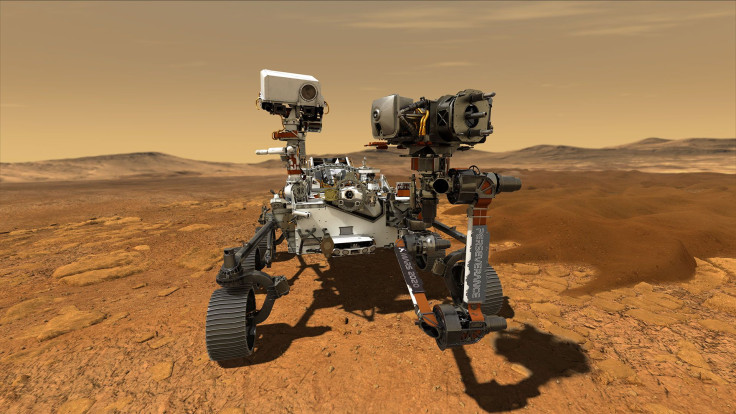NASA’s Mars 2020 Perseverance Mission Launch: How To Watch Live Broadcast
KEY POINTS
- NASA's Mars 2020 mission will launch on July 30 from the Cape Canaveral Air Force Station in Florida
- Live streaming events will broadcast the launch
- NASA's Perseverance rover will explore the Jezero crater and collect samples to be taken back to Earth by a future mission
NASA will host live streaming events through its various channels to broadcast the launch of its Mars 2020 mission on Thursday. For the mission, the space agency will send the new Perseverance rover to the Red Planet to explore its surface.
The Mars 2020 mission is set to take off on July 30 from the Cape Canaveral Air Force Station in Florida. It will be carried out using the ATLAS V 541 rocket.
For the historical event, NASA will host live streams through its different media channels. These include NASA TV, NASA Live, the agency’s YouTube channel and NASA’s Ustream account. The broadcast will begin at 7:50 a.m. EDT on Thursday.
Before the mission’s take-off, NASA will hold a pre-launch news conference featuring the agency’s administrator, Jim Bridenstine. He will be joined by Thomas Zurbuchen, associate administrator of NASA’s Science Mission Directorate, and Omar Baez, the launch director for the agency’s Launch Services Program. Other officials from NASA will also participate in the event.
After the news conference, NASA will present various briefing sessions to explain details about the mission.
For the Mars 2020 mission, NASA is aiming to explore the Jezero crater using the Perseverance rover. It is expected to reach the crater on Feb. 18, 2021.
The rover will collect samples from the area. These samples will then be brought back to Earth by a future mission. Once on Earth, they will be analyzed to see if they contain traces of alien life.
Aside from taking samples from Mars, Perseverance will also be tasked with returning a piece of the Red Planet. As part of the mission, Perseverance will carry a meteorite from Mars that crashed on Earth. The meteorite was kept At London’s Natural History Museum (NHM).
“This little rock's got quite a life story,” Caroline Smith, the head of NHM’s Earth sciences collection, told BBC. “It formed about 450 million years ago, got blasted off Mars by an asteroid or comet roughly 600,000-700,000 years ago, and then landed on Earth; we don't know precisely when but perhaps 1,000 years ago. And now it's going back to Mars.”

© Copyright IBTimes 2024. All rights reserved.





















